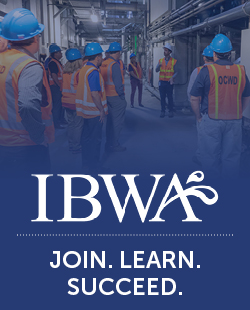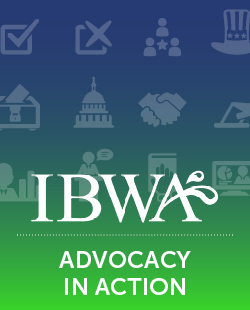Issue Statement – Uniform Labeling
Issue Statement – Uniform Labeling
IBWA STATE AFFAIRS
ISSUE STATEMENT
ISSUE: UNIFORM LABELING
POSITION: IBWA opposes all state labeling legislation and regulation that is different from or in addition to FDA requirements.
BACKGROUND: The promulgation of federal labeling laws and regulations has sought a necessary balance between the government’s responsibility to protect public health and provide consumer information and the abilities of bottled water companies to efficiently and cost effectively bring their products to market.
By federal law, bottled water labels like all food labels must provide the following information: product name (common or usual name); point-of-contact of the manufacturer, packer or distributor; volume declaration; standard of identity; and if a nutrient content claim is made or the product contains more than insignificant levels of minerals, a nutritional panel is required under the Nutrition Labeling and Education Act (NLEA). Other label information, brand, artwork, vignettes, graphics, etc. is marketing communication as each company sees fit for their products, provided they are not misleading to the public as to the nature or properties of the product.
By virtue of the NLEA and because a Federal Standard of Identity exists for bottled water, the provisions of that Standard of Identity preempt any State labeling laws or regulations that differ from the Federal Standard. However, many states enforce labeling requirements that are different from or in addition to federal FDA labeling regulations. IBWA has opposed these requirements.
-In 1992, the Vermont legislature passed a law that required bottled water products to list on each label the levels of arsenic, sodium, nitrates and lead, even if the substances were not detected. In addition, the labels had to include a statement directing consumers to contact the Vermont Department of Environmental Conservation for further information on the product.
-Since Vermont’s law was different from the laws of the other 49 states as well as FDA labeling requirements, bottled water marketers were faced with three choices: inventory separate labels just for Vermont; include the required Vermont information on all labels regardless of where the product was sold; or don’t do business in the state. This distribution problem lasted eight years until IBWA convinced the state Legislature to repeal the label declarations and harmonize Vermont bottled water regulation to the federal rules.
-There is plenty of precedent backing IBWA’s stance: IBWA fought several state labeling bills including the Vermont labeling declarations; New York legislation requiring “crypto-free” labeling, contaminant labeling and European mineral water-style labeling; Illinois bills requiring the words “potable water” be added to labels; sodium and potassium declarations in Michigan; expiration date-coding in Hawaii and California legislation calling for contaminant labeling at the “detectable level.”
-A new law in California requires bottled water distributors to provide customers receiving cooler service an annual billing statement with language that is inconsistent with existing federal law. Required information included with billing statements is considered labeling. IBWA opposed the labeling provision of the legislation.
-The “National Uniformity for Food Act,” under consideration by the U.S. Congress will provide, if enacted, a uniform national labeling standard for FDA-regulated food products. The law would prohibit states from passing state warning or notification requirements that are not identical to federal labeling rules. IBWA has lobbied Congress in favor of the legislation.
TALKING POINTS
-In general, uniform food labeling is the norm in the U.S. Congress has recognized the importance of uniformity by including in the Nutrition Labeling and Education Act (NLEA) provisions expressly preempting any state labeling requirements that are not identical to FDA labeling requirements.
-U.S. citizens benefit from the unimpeded interstate commerce of consumer products. If states create a patchwork quilt of differing labeling laws, marketing bottled water across state boundaries will become practically impossible and expensive. Bottlers would be required to separate labels and warehouse space for individual states. This places a tremendous administrative and logistical burden on bottlers which would add to the product cost for consumers.


